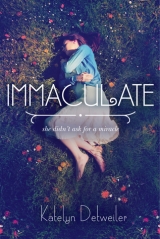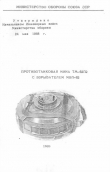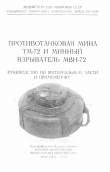
Текст книги "Immaculate"
Автор книги: Katelyn Detweiler
сообщить о нарушении
Текущая страница: 20 (всего у книги 21 страниц)

When I opened my eyes again, I was staring at a tile ceiling, a strip of fluorescent lights beaming down on me. I turned my head, desperate, searching for Iris, until the details of the room clicked into place—the counter crowded with swabs and cotton balls, the collection of brown medicine bottles and shiny metal instruments, the slick crinkle of paper on the exam table beneath me.
“Mina?”
Dr. Keller appeared, hovering over me, her eyes lit up with relief.
“You’re awake, thank God.” She reached a hand out, pressing her cool, smooth skin against my cheek. “You’ve been in and out for almost an hour now. Do you remember what happened?”
I shut my eyes and reached back toward Iris, the intense light that I could still feel, burning, radiating inside of me. She had been real. She had to have been real. I squeezed my hands into balls, fighting against the sudden emptiness I felt without her standing next to me.
But I realized as I squeezed that there was something in my right palm, the hand Iris had touched just seconds before. I released my fingers slowly and glanced down, trying not to draw Dr. Keller’s attention.
It was a leaf. A bright green maple leaf.
Which was impossible, because it was February, and all the maple leaves had long ago fallen to the ground, shriveled into broken flecks of brown and black under the winter’s snow.
But there it was, in my hand.
I had been in the tree house, warm and sunny.
I had seen Iris.
I wrapped my fingers back around the leaf. It was my secret, at least for now.
Strength swelled through me, filling every last piece of me with reassurances. Or maybe, it was as Iris had said—not just strength, but faith. A laugh and a sob both hit me at once, a hysterical choking sound that made Dr. Keller reach out for me in a panic.
“Oh no, Mina,” Dr. Keller said, squeezing my shoulder. “I should have said right away. The baby is fine. I’ve checked the heartbeat, and everything is fine. Your baby is safe and strong, and so are you.”
I’d known the baby would be fine, of course. Iris would have told me otherwise. But I was still overcome with relief to hear the words from Dr. Keller’s mouth, to know without a doubt that my baby was still here with me, that we were fighting—and winning—together. Any other answer wouldn’t have made sense to me. I couldn’t begin to imagine my world without this baby anymore, what my life would look like without his or her fragile little spirit growing inside of me, making me a better and more whole person, making my life deeper and richer and happier—a kind of happy I wouldn’t have understood before Iris stepped into my world and changed everything.
But there were still roadblocks to cross, questions to answer, before I could start feeling too content.
“What’s happening?” I asked, trying to push myself up to sit. “How did I get here? Where is everyone else?”
“Your parents and your friends are in the waiting room, and will all be enormously relieved to know you’re awake. From what I hear, your dad and Jesse managed to carry you back inside, and your friend Izzy drove her Jeep through the crowd and pulled around to the back of the house to pick you up. Most people were clearing out as soon as you went down, though. For as threatening and determined as they may have tried to sound, I suspect most of them hadn’t planned on actual violence. But then again, most violence isn’t planned, is it? The heat of the moment is a powerful force.”
She leaned down to lightly kiss my forehead. “You’ve been unconscious since you got here, but your vitals have been fine. No signs of premature labor. I was about to take you to the hospital, though, if you’d been unconscious much longer. You had us worried. It was like you didn’t want to wake up.”
“No,” I said, my lips curling into a small smile. “I think I just wasn’t ready.” Not until after Iris was finished with me.
“Mina.”
The door opened, and my mom peered in, her eyes red and swollen. “We thought we heard voices. Oh, thank God, you’re okay. We were so scared. So scared.” She rushed over to me, sweeping Dr. Keller aside as she lifted me up into her arms. My dad came in after her, but Hannah, Izzy, and Jesse trailed behind, waiting at the door.
“Come on, guys,” I said, waving them in. “You’re family, too. Don’t be so silly.”
For the next few minutes we were all a tangle of arms and hair and tears, until finally, after everyone had been adequately squeezed and comforted, we were quiet again—thinking about what would come next. What should come next.
Dr. Keller coughed and edged her way to the center of the room.
“I want to propose something,” she said, her eyes fixed on me. “As far as anyone else knows, you were ambushed by a crowd and knocked unconscious, rushed away for medical assistance. No one else but the people in this room right now know that the baby is fine. What I’m suggesting, what might be easier for you, Mina, for everyone—is that we keep this our secret. We tell the rest of the world that you lost the baby. That you’re leaving town to recover and mourn after everything that’s happened. And then you escape. You go somewhere, find a safe place to hide out, at least for now. Have this baby in peace. Figure out the rest of the plan one day at a time. People can speculate as much as they like, but according to the record—according to what I’m prepared to tell the staff here and the press and whoever else asks—there is no baby, not anymore. I’ll worry about the details. Let everyone who was involved in the protest today think that the blood is partially on their hands. It’s the least of what they deserve.”
This wasn’t a new suggestion, the idea of leaving, disappearing with the baby and starting over somewhere new. It was what I should have done straight after the shower, right when I’d first learned of the protest. But as I heard it all now, the details arranged out loud, each of Dr. Keller’s words rained down on me like hot, biting pellets. A distant possibility had instantly become reality. The whole proposition was so sudden . . . but maybe so perfect, too—so much harder and somehow maybe so much simpler than anything else I’d already considered on my own.
“I . . .” I started and stopped, still too taken aback with the abruptness of it all. I tried to let the suggestion settle, to see if the parts all actually fit into a rational whole. Was it possible? Could I—could we—really pull this off? The idea that no one would have to know, that I could disappear, raise my baby in peace until . . . until when? Until Iris came back for us? Or forever?
“But what if I could never be Mina Dietrich again?” I asked, not able to look anyone in the eyes. My skin was hot and clammy, and I tugged at the neck of my sweatshirt for cooler air. “I can’t ever really come back, can I? People—some people, at least—will always remember. Green Hill will always remember. I’ll have to spend the rest of my life with a new identity.”
I could never go home.
Or at least, not if I kept the baby. And giving the baby up, giving my little miracle away to strangers—that had never been an option, and it still wasn’t.
I would miss my family. I would miss Izzy and Hannah. And Jesse. I would miss Jesse. I’d miss all the things I hated most about Green Hill, too, all the annoying little small-town quirks—the way that everybody knew who everybody was and everybody knew everybody’s business.
I would miss Mina, the girl I’d been, the girl I’d known, for the last eighteen years.
Because without my family, without Green Hill, without my past . . . who would I be?
“What do you think?” I asked, lifting my head up to face all of them. “All of you, I want to hear what you think I should do.”
My dad cleared his throat and we all turned to stare at him, waiting. “I think it’s the only idea that makes sense right now. We all saw how crazy people can be when religion is in question, when basic beliefs are threatened. Maybe we’ll come up with a better solution down the road, but for now . . . I think we get you out of Green Hill. I think we get you away from everyone.”
“But how will we disguise her? Where will she go that no one will recognize her?” my mom asked, her eyes darting between me and my dad. “Who will go with her?” Her skin looked suddenly so sallow to me, so lined with stress, and I realized with absolute certainty that something had to change—that I couldn’t keep putting all of them through this kind of anxiety.
“I have family in New York City,” Jesse said quietly. “Brooklyn. An aunt and an uncle whose kids have all moved out. Mina could stay there, at least for a little while, until she can find a place of her own. New York seems like a good place to disappear, no?”
“Oh, I don’t know,” my mom said, biting her lip as she wrapped her hands protectively around my wrist. “Mina, alone in the city, and I can’t ask your family to take her in like that . . .”
“I would go, too,” Jesse said. “I was already planning on living with them this fall. When school started. I’ll just move in a little earlier than expected.”
My head snapped up in his direction. But just as quickly he looked down at his feet, leaving me alone with the dizzying rush of the possibility of it—of me and Jesse, together, running away to New York City to start a new life.
“You can visit, of course,” he continued, “though I have a feeling people would try following you, at least at the beginning. I don’t think Mina will have to do much—a different hairstyle, maybe, and a different name—but other than that, she’ll just be another pregnant woman in New York. Another young single mom. My aunt homeschooled my cousins, so she can help us finish out school that way, and I can do odd jobs for now—work at a restaurant, apply for film crews. And then once Mina has the baby, well . . . we can figure the rest out then.”
I couldn’t fight the feeling that this wasn’t the first time Jesse had thought through his suggestion—it seemed too polished, too logical for him to have come up with it on the spot. Had he been thinking about this exact setup that day on the beach in LBI, talking about the future? Maybe if things had gone differently from there, if I hadn’t said what I did on New Year’s Eve . . . would we have had this conversation sooner? Before things had gone so far?
I would never know. But I could accept the offer now. I could walk into this new era, start my new life—and I wouldn’t have to be alone.
“I think it makes sense,” I said, before anyone else could challenge me with a list of reasons for why it couldn’t possibly work.
“I agree,” my dad said, clapping a hand on Jesse’s shoulder.
“Me, too,” Izzy said. “But I’ll miss you. At least it’s only two hours away . . . I can visit. We can all visit.”
“And if I go to NYU . . .” Hannah trailed off, leaning in to hug me.
My eyes drifted from face to face, and in each expression I saw the same mix of fear and hope and acceptance that I felt pulsing through me, growing thicker and heavier with every breath. Maybe the plan was rushed, maybe flaws would snag us somewhere along the way, but this was the best we had. This was the only way forward I could see.
“Well, then,” I said, my gaze stopping on Jesse, my cheeks burning when I found his warm brown eyes finally meeting mine. “I guess we’re going to New York City.”
• • •
Jesse’s uncle Carl volunteered to drive us up to his sister’s home in Brooklyn as soon as we could be packed and ready to go. We left in the middle of the night, the back of Carl’s van filled with my new crib and stroller and all the presents from the shower. My parents had wanted to come up, too, but we decided it was for the best that they lie low, and keep the reporters and any lingering detractors or followers guessing about when and how I had left. Dr. Keller had executed her role in the whole scheme perfectly—in the interview that was looping over television and the Internet, she played the part of the devastated, infuriated doctor so well that even I could almost believe she was telling the truth: “A baby has been killed. A young woman is heartbroken, destroyed. Robbed of her child’s existence. Because of senseless violence and ignorant hatred. I hope those responsible acknowledge their blame in this. I hope the country—the world—has learned a valuable lesson about the media’s power of destruction.”
I had planned to stay awake for the drive, desperate to memorize every last detail of this monumental life journey. But instead I fell asleep before we were even out of Pennsylvania, my head propped too comfortably against Jesse’s shoulder. I didn’t open my eyes again until I heard the sound of Frank Sinatra’s “New York, New York” blaring from the radio as we drove through the Holland Tunnel. Carl was grinning at me in the rearview mirror, bopping his head along to the beat—to the lyrics about leaving behind small-town blues, heading into the big city for a brand-new start.
“Jesse’s song request for our grand entry. Welcome to New York, kid,” he sang out over the lyrics, rolling down his window to let in a blast of frosty winter air.
We pulled out of the fluorescently lit tunnel and into the city streets, the sky pinkish-gray as the first trace of morning sunlight fought to rise above the towering skyline. For the rest of the ride across lower Manhattan, I stared wide-eyed out the window, my nose practically smearing against the glass. I had only been to New York a few times growing up, and always for typically touristy reasons—the Met, a Broadway play, the Statue of Liberty. But now I looked out at it from a new perspective, amazed by how many delis there were, how many coffee shops and pizza places and Chinese takeout restaurants we passed, dozens on every block.
There were people everywhere, but they weren’t the Times Square tourists who were still asleep in their hotel rooms, hours away from starting on the day’s itinerary. They were New Yorkers, real New Yorkers—heads ducked against the early morning cold, walking so briskly and with so much purpose that I could barely catch a glimpse of them as they streamed along the sidewalks.
I found Jesse’s hand on the seat next to mine and squeezed it in my palm.
This wasn’t anything like Green Hill. This was an entirely different world.
By the time we crossed the bridge into Brooklyn, the fresh orange sun shining along the East River, I knew that I would be okay.
I knew that this could be home.
• • •
I stuck to my plan of having a home birth, though the home itself was very different from the house on Hopewell Lane that I’d pictured. But Jesse’s aunt and uncle, Maria and Tony Russo, had made me feel as if I belonged in their homey, well-worn brownstone from the minute I arrived. They cooked all my meals and refused to let me lift a finger toward housework no matter how much I insisted, and they were always adding to the growing collection of diapers and bottles and wipes to prepare for the baby’s arrival. So I spent my days instead studying with Jesse under Maria’s instruction, determined to get through as much material as possible before the baby arrived. My senior year might have been very different from the one I’d imagined for myself for so long, but I would still have a diploma at the end, and I would still have options, open doors, for my future. I wouldn’t be Green Hill High’s valedictorian, but I had achieved so much more than just a string of perfect scores.
When my mind couldn’t absorb any more equations or theorems or definitions, I busied myself with knitting, another subject Maria was well versed in, and I’d already finished my first pair of nearly identifiable baby socks. Knitting kept me sane, distracted me from thoughts of the world beyond our brownstone. The television news was rarely on, and I used the Internet strictly for studying—no Virgin Mina site updates, no social media—but from the bits and scraps that I did see, I could tell that I was no longer a major story. The anchors had moved on—all hoping to wipe away any unpleasant reminders of their guilt as quickly as possible.
But not everyone was forgetting and forgiving themselves so quickly. According to my parents, the town of Green Hill in particular was attempting to absolve itself with an onslaught of casseroles and flower displays and fruit baskets. Sympathy cards were flooding our mailbox from across the globe, more and more each day—so many that the post office was making a separate trip to our house every afternoon with an overfilled sack of paper apologies. Someday maybe I would open them. But I wasn’t ready for any pardons. Not yet. Not until my baby was safely, finally in my arms.
I felt the first contractions two weeks after the day we arrived, a week before my official due date. Dr. Keller and my parents and Gracie were all packed in the van and on the road within minutes of my call, and were somehow, miraculously, knocking on the door almost a half hour before we expected them.
My mom and Dr. Keller never left my side during the next fourteen hours of painkiller-free labor, rubbing cool cloths along my forehead, counting my breaths, letting me claw against their arms as I did my best not to scream, terrified that neighbors would alert the cops if they heard.
I felt as if I were being pulled apart, inside out, and in my most delusional flashes of pain, I was tormented with the fear that this was to be my ultimate punishment—that I was becoming unmade and undone, nothing more than a heap of broken, bloody pieces. But in the darkest moments, I imagined Iris’s voice in my ear—or was she really there somehow, inside my head?—whispering encouragement, telling me that I’d be fine, that it would all be over soon.
Just when I thought that I couldn’t take a second more, that my body and mind couldn’t possibly go through any more torture, I heard the cry. A long, earsplitting wail that was without a doubt the most beautiful noise I’d ever experienced. I pushed again with Dr. Keller’s command, harder, pulling together every last bit of energy I could find.
And then I felt the baby, my baby, slip out of me. I heard Dr. Keller and my mom shrieking and crying with joy, and I watched from the corner of my tired, tired eyes as they cleaned a tiny face, a tiny body.
And then there the baby was—there she was, my little girl—so pink and wrinkly and perfect, wrapped in a soft yellow blanket and resting in my arms.
• • •
I had just said my weepy, grateful good-byes to Dr. Keller and my family, all of whom had spent the last two days since the baby was born alternatingly cooing, crying—happy, relieved, amazed tears—and waiting on both of us hand and foot. My parents had promised to visit again as soon as possible, hopefully with Hannah and Izzy the next time, but it still hurt to let them go. It was only now sinking in that I wouldn’t be going back home with them.
I would never be going back home.
After they’d driven away, I shut myself up in my room, just me and my baby. It was the first time we’d been alone together, no grandparent or aunt or doting doctor hovering at our side. I was propped up in my bed, staring down at her precious face—staring, though I had certainly memorized every piece of her by now, every last wrinkle and freckle and adorable fluff of dark brown hair. I saw myself there, but I saw details that I couldn’t identify, too, like a canvas that I’d started painting, but someone else had finished. She had my full lips and my round nose, and my wide eyes, eyes that were already bursting with curiosity and intelligence. But where my eyes were blue, hers were green. A piercing, emerald green, a green that you couldn’t look away from once they’d caught you in their grip.
A green that I could never, would never forget.
She was mesmerizing, my still unnamed gorgeous baby girl—unnamed because nothing seemed right enough, perfect enough to capture everything that she was and everything that she could be. I was waiting for some sign, some bright flash of inspiration. I was also waiting for Iris to come back, though I had the sinking feeling that I wouldn’t see her again for a while. Not until I really needed her.
The time will come, she’d said. You’ll know when it does.
The words still gave me chills.
But I wanted more than that. I wanted to know what I was up against.
I wanted to know if my little girl would be obviously, glaringly special, and not just special in the way that most parents probably saw their own child. Would she be too different from other kids? Would other people see it, feel it somehow, a shimmer, a prickle, without understanding what it could possibly mean? Who she could possibly be? I hoped not, for her sake. I hoped not, with a dread and a conviction that I’d never felt before I’d held her in my arms. I wanted her to fit in, to be like every other kid. I wanted her to blend in with the rest of the world. Because what would happen to her if the truth came out? If people had fixated so fiercely on me—so much hate from some, so much adoration from others—I couldn’t help but think it would be even worse for her. Much worse.
But—and this thought scraped at me, gnawed and bit and tugged no matter how hard I tried to keep it shackled down—why would she be here at all if her life would be a secret? There was a reason for this. Iris had made that much clear. And I doubted that the reason involved her living an ordinary, invisible kind of life.
I still hadn’t told Jesse about that final moment with Iris, or about the leaf, which was now safely pressed between the pages of Anne of Green Gables, stowed in my purse for the journey to Brooklyn. There’d been too much else to think about since, but I would. I would tell him everything. I needed him to know, needed him to process, analyze, and hypothesize alongside of me. But we had time, surely? Time before my baby needed to be anything but a baby?
A knock on the door interrupted my thoughts. I took a deep breath, sweeping all the worries and unanswered questions back into their dark corner. My fingers trailed along the charm bracelet on my wrist, the birthday present from Gracie that I never took off, and I willed myself to remember that they were still there—that they were always still there, just a call or a two-hour drive away.
“Come in.”
The door opened, and Jesse peeked in before stepping into the room, carrying a tray with two steaming mugs and a plate of delicious-smelling chocolate chip cookies.
“I know you probably wanted to just be alone right now, but Maria baked these fresh for you,” he said, a nervous smile on his lips. “She thought it would be the best cure for homesickness.”
“She’s so amazing,” I said, patting the crumpled sheets on the bed next to me. He put the tray down on the nightstand and settled in beside me, reaching out to stroke the baby’s dark and feathery hair. “And so are you.” My cheeks flamed, but I kept going. “You’re beyond amazing, really. I still can’t believe everything you’re sacrificing for me. I think I could spend the rest of my life thanking you and it still wouldn’t be anywhere close to enough.”
“There was no other choice, Mina,” he said, his voice steady, so matter-of-fact as he turned his face to look me in the eyes. “You need a safe place for you and the baby. And I . . . well, I need you. I wasn’t going to let you run away from me, too. Not a chance.”
He reached out, his hand soft and gentle as he found my fingers and laced his around mine.
“It’s not going to be easy,” I said, though it was difficult to think properly with the sensation of his thumb rubbing circles on my palm. “It might never be easy.”
Jesse leaned in closer, and I shut my eyes as his lips met mine. It was a very different kiss from that first eager, thrilling touch on my birthday or the desperate, pleading demand of New Year’s Eve. This kiss was slow and sweet and steady. There was no rush, no urgency, because this kiss was a beginning. A promise.
After a few minutes we broke apart.
“I told you that night at Frankie’s, out on the stoop. I want a little crazy in my life. Remember? And besides that, I made a promise to Iris . . .” He paused, his eyes burning into mine. “I saw her, Mina. At the protest. Only for a second or so, right when you went down. Maybe I imagined it, but she looked so real. So completely real. It’s crazy, but I felt like she was looking out for you.”
“It’s not crazy,” I said, feeling instantly lighter and more hopeful than I had in a very long time. “Not crazy at all.”
I could tell that he wanted to ask more, but he didn’t know where to start. “Iris . . .” He said, shaking his head.
“Iris,” I repeated, the name a delicate, warming hum on my lips. “Has a nice ring to it, doesn’t it?”
I smiled, raising my baby up to look straight into her perfect green eyes.
“Iris?” I looked at her and I knew. “Yes. Iris.”
• • •
This is the end, but this is also the beginning.
This is the story that I’ll wait to tell you until life—inevitably, I suspect—forces the truth to the surface. A secret that I hope to keep buried until you are old enough to ask and understand your own questions. Old enough to know that life is not always what you expect, that reality is not always as neat and orderly as it may seem—and that there aren’t always answers, as much as we want them, as hard as we may try to seek them out.
This is the story of how you came to be, of falling in love, of starting down new paths.
This is the story of a miracle.








